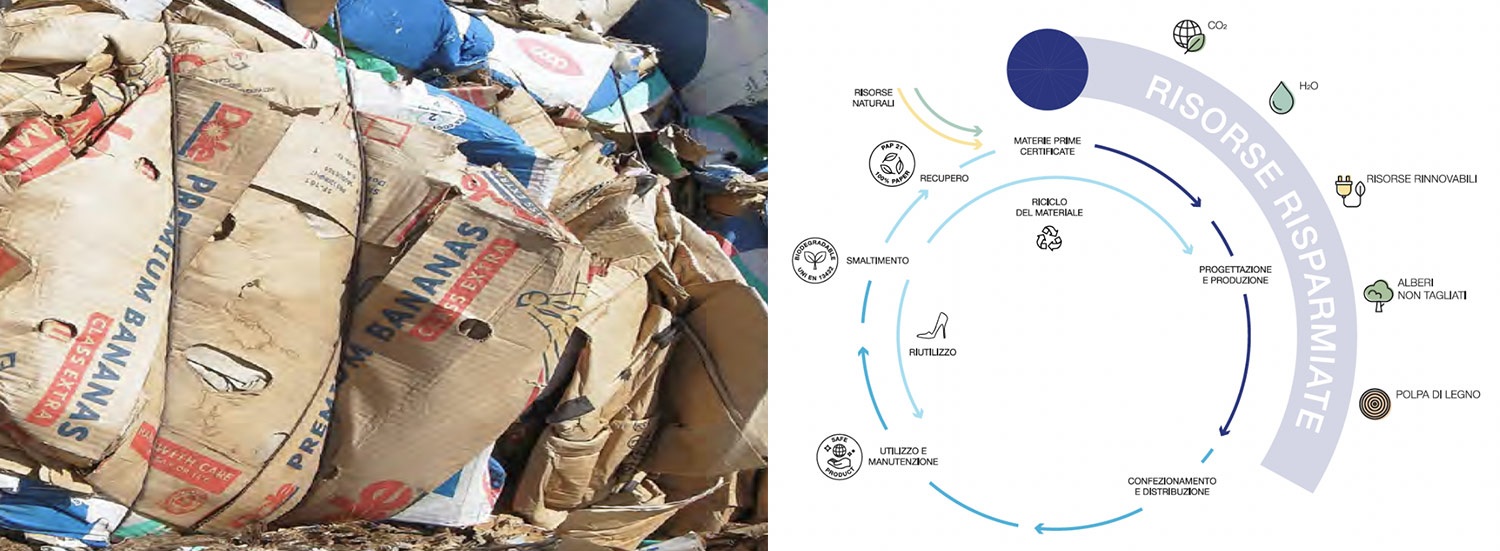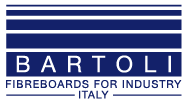LCA Approach (Life Cycle Assessment)
Product life cycle assessment

The Life Cycle Assessment represents one of the fundamental tools for the implementation of an Integrated Product Policy, as well as the main operational tool of "Life Cycle Thinking": it is an objective method of assessing and quantifying the energy and environmental loads and potential impacts associated with a product/process/activity throughout its entire life cycle, from raw material acquisition to end of life ("from Cradle to Grave").
The relevance of this technique lies mainly in its innovative approach of assessing all stages of a production process as related and dependent. Among the tools that have arisen for the analysis of industrial systems, LCA has assumed a prominent role and is expanding rapidly nationally and internationally.
In 2021, we commissioned "Ergo srl" a spinoff of Sant'Anna University of Pisa, to conduct an analysis to assess the potential environmental impacts of our fiberboard and specialty fibers throughout their entire life cycle. This report allowed us to identify and measure:
- the most critical areas within the life cycle of the products studied and identify critical aspects at the technical, managerial, logistical, etc. level;
- opportunities for improving the environmental aspects of the studied products in order to minimize their impact, through optimizing efficiency in natural resource consumption or reducing emissions to air and water.
- support the company's strategic decisions on planning, choice of priority areas, design or redesign of processes;
- provide scientific support for internal information on the environmental performance of products.
True to our belief that we cannot be a fully sustainable company if the entire supply chain cannot boast the same commitment, values, care, and performance in the environmental sphere. Nowadays, the concept of supply chain is increasingly relevant. The evaluation of a company's offer is no longer related only to its products or services, but to the work and information released by all supply chain partners. We consider this tool among the most suitable to provide a true identity card of the company's approach to the environment and related productions.


